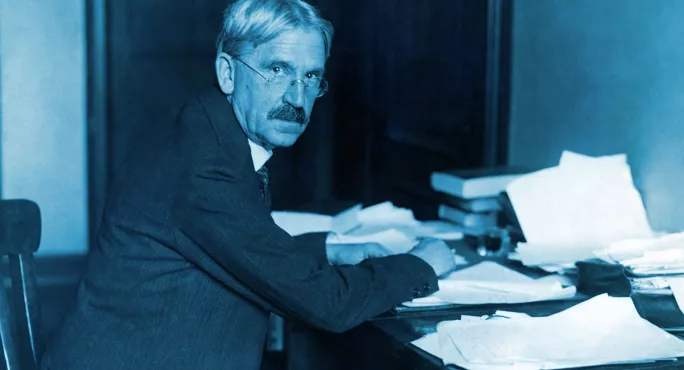Who was John Dewey?
John Dewey (1859-1952) was a US philosopher and psychologist whose ideas had a huge influence on education.
Dewey was a leading name in the world of functional psychology and a key figure in the development of progressive education.
What did he have to say about education?
Dewey felt education should provide students with opportunities to interact with and experience the world around them.
He emphasised the importance of social and interactive processes, seeing the school environment itself as a social institution and a place where social reform can happen.
As such, he proposed, students need to be trained to realise their full potential and afforded an educational experience that will help them to develop the skills required to be an active member of society.
Dewey also focused on the necessity of balanced collaboration between teachers and students. He believed that teachers need to guide and facilitate students in their discovery of knowledge, so that they are involved and interested in the learning taking place.
How did this influence pedagogy?
Educational approaches based on Dewey’s ideas revolve around the experiences pupils receive.
The aim is to place them in an active position in relation to their learning so that they can make links to prior knowledge and adapt new learning and skills to personal and future scenarios.
This can be achieved by:
- Creating tasks that engage students on a personal level, relating topics and ideas to the real world. Dewey suggested personal interest and a connection with what is being learned is vital to the building and retaining of knowledge.
Teachers can also model this by displaying what Dewey called “intellectual curiosity”. By taking a personal interest in what they are sharing with students, teachers display connections with knowledge that transcend the classroom and (hopefully) cross over into the way young people behave and interact in society.
- Designing tasks and experiences that facilitate independent learning, with teachers as mentors and guides, as opposed to lecturers.
This can take the form of interactive activities that require links to prior knowledge or using clues to help bridge the gap between what is known and what is to be discovered.
- Creating opportunities for social involvement, where learning can extend beyond the classroom. Dewey says it is important to link the learning that takes place both in schools and wider society; this could happen through forming partnerships with other local schools, nursing homes or charities where projects and topics can incorporate visits, events or a link in some way to the people and social role these institutions provide.
Further reading:
Dewey, J (1900 and 1902) The School and Society and The Child and the Curriculum, (BN publishing)
Tyson, C (2015) Applying the work of philosopher John Dewey to our school, (Innovate My School)




